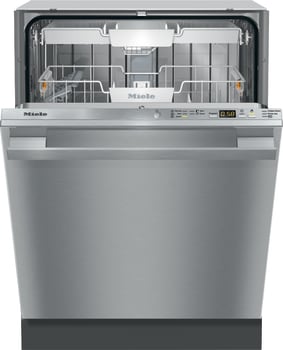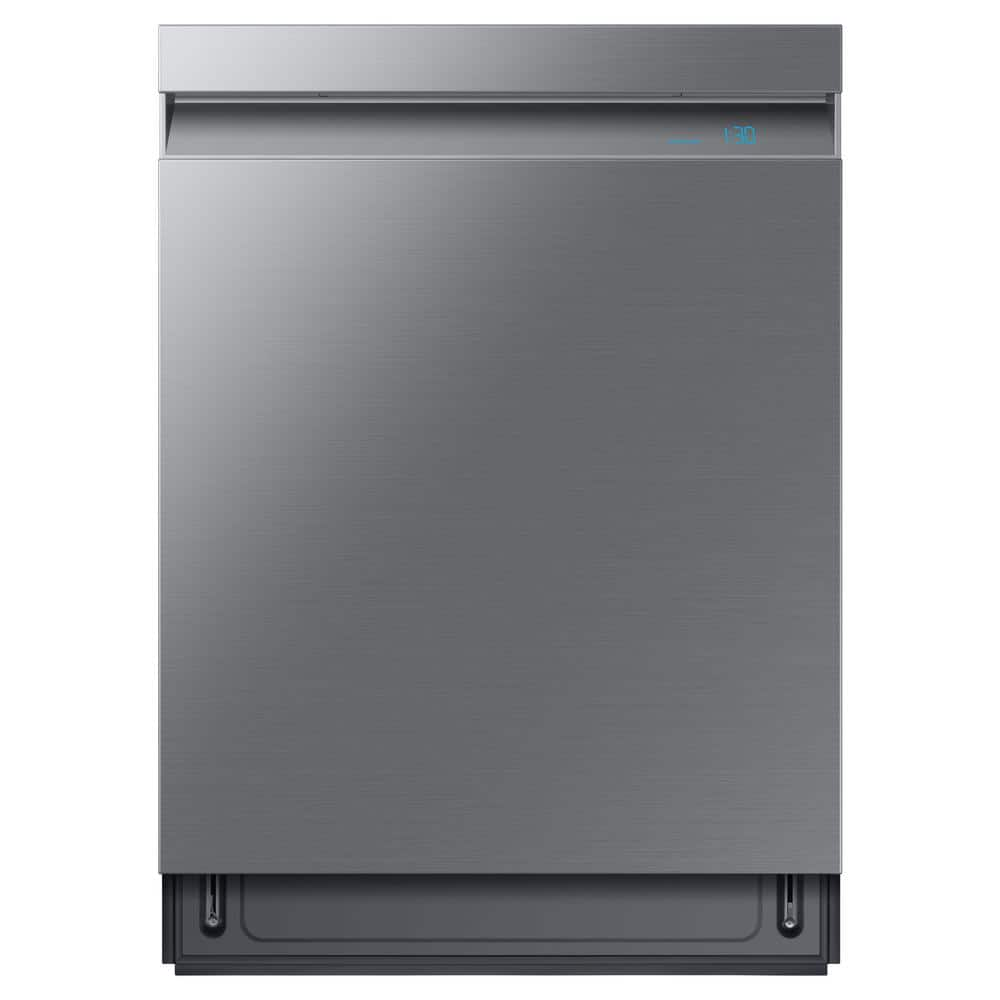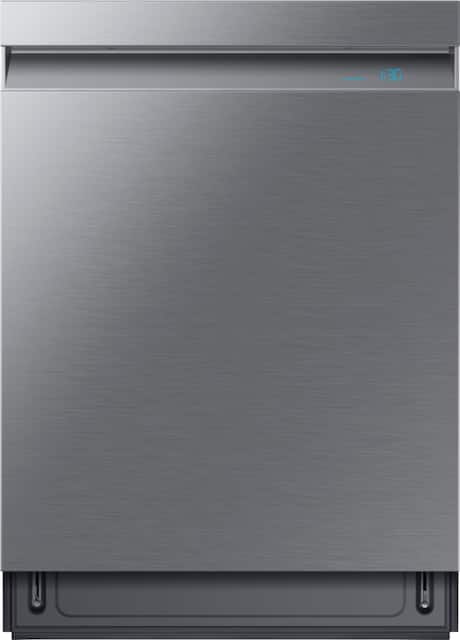Miele G5056SCVISF 24 Fully Integrated Dishwasher with Original Cutlery Tray
Miele G5056SCVISF 24 Fully Integrated Dishwasher with Original Cutlery Tray, 44 dBA, QuickIntenseWash, ExtraClean & ExtraDry Options, SaniWash – Sanitize Cycle, PureLine Handle, and Energy Star Rated: Stainless Steel, Integrated.
- Does its job without making a fuss – running at a very low 44 dBa decibel rating, they produce little in the way of noise
- Energy Star® rated dishwashers use less water and energy than standard models helping to save money on utility bills
- Original Cutlery Tray
- Whisper Quiet 44 dBA
- QuickIntenseWash
- ExtraClean & ExtraDry Options
- SaniWash – Sanitize Cycle
Additional information
| Width | 23 9/16" (598 mm) |
|---|---|
| Height | 33 11/16"-36 1/4" (855-920 mm) |
| Depth | 22 7/16" (570 mm)[Depth does not include door panel] |
Cutlery (also referred to as silverware, flatware, or tableware) includes any hand implement used in preparing, serving, and especially eating food in Western culture. A person who makes or sells cutlery is called a cutler. While most cutlers were historically men, women could be cutlers too; Agnes Cotiller was working as a cutler in London in 1346, and training a woman apprentice, known as Juseana.
The city of Sheffield in England has been famous for the production of cutlery since the 17th century and a train – the Master Cutler – running from Sheffield to London was named after the industry. Bringing affordable cutlery to the masses, stainless steel was developed in Sheffield in the early 20th century.
The major items of cutlery in Western culture are the knife, fork and spoon. These three implements first appeared together on tables in Britain in the Georgian era. In recent times, hybrid versions of cutlery have been made combining the functionality of different eating implements, including the spork (spoon / fork), spife (spoon / knife), and knork (knife / fork). The sporf or splayd combines all three.
A dishwasher is a machine that is used to clean dishware, cookware, and cutlery automatically. Unlike manual dishwashing, which relies on physical scrubbing to remove soiling, the mechanical dishwasher cleans by spraying hot water, typically between 45 and 75 °C (110 and 170 °F), at the dishes, with lower temperatures of water used for delicate items.
A mix of water and dishwasher detergent is pumped to one or more rotating sprayers, cleaning the dishes with the cleaning mixture. The mixture is recirculated to save water and energy. Often there is a pre-rinse, which may or may not include detergent, and the water is then drained. This is followed by the main wash with fresh water and detergent. Once the wash is finished, the water is drained; more hot water enters the tub by means of an electromechanical solenoid valve, and the rinse cycle(s) begin. After the rinse process finishes, the water is drained again and the dishes are dried using one of several drying methods. Typically a rinse-aid, a chemical to reduce the surface tension of the water, is used to reduce water spots from hard water or other reasons.
In addition to domestic units, industrial dishwashers are available for use in commercial establishments such as hotels and restaurants, where many dishes must be cleaned. Washing is conducted with temperatures of 65–71 °C (149–160 °F) and sanitation is achieved by either the use of a booster heater that will provide an 82 °C (180 °F) "final rinse" temperature or through the use of a chemical sanitizer.
Fully (French pronunciation: [fyji]) is a municipality in the district of Martigny in the canton of Valais in Switzerland.
Miele ( MEE-lə; German: [ˈmiːlə]) is a German manufacturer of high-end domestic appliances and commercial equipment, headquartered in Gütersloh, Ostwestfalen-Lippe. The company was founded in 1899 by Carl Miele and Reinhard Zinkann, and has always been a family-owned and family-run company. The Miele family holds 51.1% and the Zinkann family owns 48.9% of the company.
A tray is a shallow platform designed for the carrying of items. It can be fashioned from numerous materials, including silver, brass, sheet iron, paperboard, wood, melamine, and molded pulp. Trays range in cost from inexpensive molded pulp trays which are disposable and inexpensive melamine trays used in cafeterias, to mid-priced wooden trays used in a home, to expensive silver trays used in luxury hotels. Some examples have raised galleries, handles, and short feet for support.
Trays are flat, but with raised edges to stop things from sliding off them. They are made in a range of shapes but are commonly found in oval or rectangular forms, sometimes with cutout or attached handles with which to carry them.
A more elaborate device is the tray table, which is designed to accommodate a tray, or to serve as a tray itself. There are two primary kinds of tray tables. The TV tray table is typically a small table, which may have legs that fold to allow it to be carried like a tray. The airplane tray table is a tray built into the back of an airline seat, which folds down so that the person sitting in the seat behind the one containing the table can use it as a surface from which to eat meals served on the airplane.
With or WITH may refer to:
- With, a preposition in English
- Carl Johannes With (1877–1923), Danish doctor and arachnologist
- With (character), a character in D. N. Angel
- With (novel), a novel by Donald Harrington
- With (album), a 2014 album by TVXQ
- With (EP), a 2021 EP by Nam Woo-hyun






Reviews
There are no reviews yet.